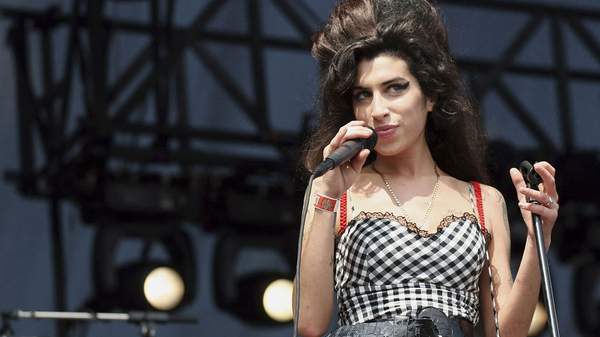Overview
The first thing you notice about the 14-year-old Amy Winehouse is her smile. Captured on her best friend’s home movie, it's enormous, almost all-consuming, a porthole to an as yet undiscovered virtuosity. With jagged and uneven teeth, the smile — like her accent — is imperfect and unrefined, as though everything had been hastily thrown together at the last minute. But it's also unmistakably real and a permanent fixture on the young girl's face. Over the next 90 minutes of Asif Kapadia's remarkable documentary Amy, what most stands out is not the prodigious talent, nor the substance abuse and self-destruction, but simply the steady fade of that perfect imperfect smile.
Just like Kapadia’s previous documentary, Senna, Amy is an extraordinarily moving tribute to a prodigious talent whose life seemed somehow unavoidably foredoomed. With its remarkable catalogue of personal videos, voicemails and recording sessions, Kapadia lets Winehouse and her closest friends narrate her own tragic spiral in real time, taking us from the "gobby north London Jewish girl with a lot of attitude" to the death of a full-blown celebrity in 2011. It’s a masterful device, insulating the film from the inevitable accusations of bias and blame apportionment made by the very individuals who constantly comment and appear throughout.
To be clear: Amy isn’t a whodunnit. Winehouse drank herself to death despite countless warning from doctors, friends and colleagues. Instead, the film reveals the extent to which almost everybody in her life failed to convert their concern into real action so long as the money continued to flow their way. "They tried to make me go to rehab,” she sang, and it’s true, but they didn’t try nearly hard enough.
What’s abundantly clear from the archival footage is how well Winehouse understood her own predicament and disposition. “I’ve depression,” she explains at one point, “but so do a lot of other people. I’m just lucky because not many people can pick up a guitar for an hour or two and make themselves feel better.” True to the adage, Winehouse really was all about the music, and had she been left alone to sing jazz in small clubs, things may have played out very differently.
The only person who seemed to fully grasp that was her idol, Tony Bennett, with whom she recorded a duets album shortly before her death. “True jazz performers don’t like crowds of 50,000 in front of them,” he explains, before adding in a heart-wrenching postscript, “If she were still here, I’d say ‘slow down … you’re too important’”. It’s moments like this that make Amy an overwhelmingly tragic and absorbing portrait piece, steeped in disquiet because, just as it was with Senna, you know it ends in a crash.
There is, in fact, one last glimpse of a smile, right before the film ends. During her infamous concert disaster in Belgrade just weeks prior to her death, Winehouse sits down on stage, drunk and disoriented, amidst a chorus of boos from the crowd. While the band tries to get her to sing, an almost imperceptible grin flashes across her face, as though she’d suddenly heard the punchline to a joke nobody else could hear.
Features
Information
When
Thursday, July 2, 2015 - Wednesday, July 29, 2015
Thursday, July 2 - Wednesday, July 29, 2015
Where
Various cinemas in SydneyPrice
$15 – 25-
Event Type
